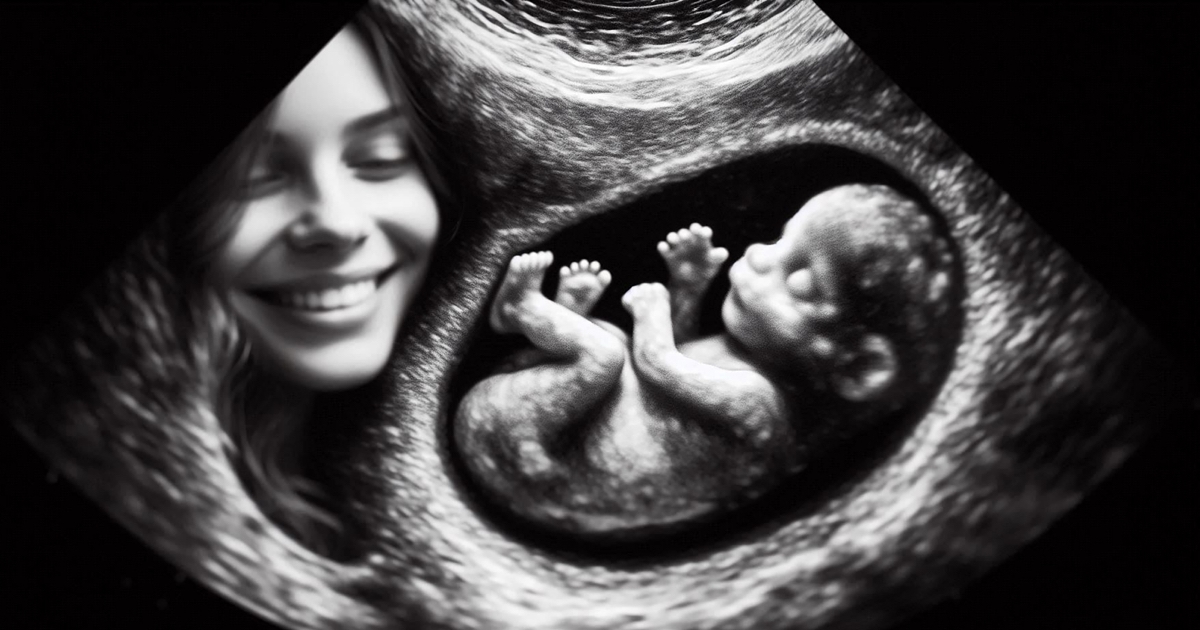Weekly check-ups, detailed evaluations, fetal well-being monitoring. Optimize success through nutrition guidance and holistic care.
Every Pregnancy Is Unique
Each pregnancy requires careful and individualized monitoring.
At our clinic, antenatal care follows a scientifically structured, week-by-week protocol integrated with a holistic approach.
This process is not limited to tracking the baby’s development—it also includes comprehensive support for the mother’s nutrition, emotional health, metabolic risks, and lifestyle habits.
Week-by-Week Pregnancy Monitoring
First Visit (Weeks 6–8)
During the initial examination, the gestational sac, yolk sac, and embryo are evaluated via ultrasound.
Fetal cardiac activity is typically visible at this stage; if not, a repeat scan is performed about 10 days later to rule out anembryonic (empty) pregnancy.
The mother’s weight and blood pressure are recorded. Folic acid (400–800 mcg/day) is prescribed if not already taken.
Baseline lab tests include CBC, urinalysis, fasting glucose, creatinine, liver and kidney function tests (SGOT, SGPT), TSH, VDRL, HBsAg, and TORCH panel.
The number of embryos and implantation site are also determined.
11–14 Weeks
Fetal nuchal translucency (NT) and nasal bone are measured.
These are combined with maternal blood markers (PAPP-A, free β-hCG) to perform the first-trimester screening test.
If needed, chorionic villus sampling (CVS) is scheduled for genetic diagnosis.
Weight and blood pressure tracking continue.
16–18 Weeks
If the first-trimester screening was not done, a triple test is performed.
Screening for neural tube defects (Spina Bifida) is conducted.
A urine culture is obtained, and cervical length is measured—especially in multiple pregnancies.
If indicated, amniocentesis may be performed.
Iron supplementation is usually initiated, and fetal biometry (growth) is assessed.
20–23 Weeks (Detailed Anomaly Scan)
A comprehensive ultrasound evaluates fetal organ development, including the heart, brain, kidneys, stomach, and skeletal system.
Cervical length is reassessed. If it measures below 20 mm (singleton) or 25 mm (twin), a cerclage (cervical stitch) may be considered.
When necessary, cordocentesis (fetal blood sampling) is performed.
Maternal weight and blood pressure are monitored regularly.
27–28 Weeks
Fetal growth is assessed by ultrasound.
A 50g oral glucose tolerance test (OGTT) is performed to screen for gestational diabetes.
If there is Rh incompatibility, Anti-D immunoglobulin is administered (usually after week 28).
Weight and blood pressure checks continue.
31–32 Weeks
Fetal biometry is reassessed.
Maternal CBC, urinalysis, blood pressure, and weight are checked for early detection of preeclampsia or anemia.
34–35 Weeks
A Non-Stress Test (NST) is performed to monitor the baby’s heart rate and movements.
Fetal growth, well-being, and maternal condition are reviewed to ensure optimal timing and preparation for delivery.
36–37 Weeks
Ultrasound and NST are repeated to evaluate fetal position and readiness for birth.
Maternal risk factors, weight, and blood pressure are rechecked.
A personalized birth plan is created.
Week 37 and Beyond
Appointments are held every 7–10 days.
Each visit includes monitoring:
- Fetal position
- Cervical dilation
- Labor preparation
The timing and method of delivery are planned together with the mother.
Our Clinical Approach
At our clinic, pregnancy monitoring is more than a checklist — it is a personalized journey.
Each mother-to-be is cared for through a comprehensive, multidisciplinary lens, incorporating:
- Regular check-ups
- Perinatology-based risk management
- Nutritional counseling
- Psychological support
- Functional medicine principles
Our mission is to ensure you experience a safe, confident, and well-supported pregnancy from start to finish.
Common Pregnancy Concerns
Heartburn and Reflux
Common due to hormonal changes and increased abdominal pressure. Managed through meal adjustments, sleep positioning, and safe medication plans when necessary.
Constipation
Often caused by hormones, iron supplements, and uterine pressure.
We recommend fiber-rich meals, adequate hydration, and gentle physical activity for prevention and relief.
Edema (Swelling)
Mild swelling in the feet and hands is normal, but sudden or severe edema requires evaluation to rule out preeclampsia. Close monitoring and lifestyle guidance are provided as needed.
Other Concerns
Insomnia, leg cramps, headaches, and allergies are also common and addressed individually through tailored care plans.
Schedule your pregnancy follow-up appointment to ensure continuous care, early detection, and holistic support for both you and your baby.

